Artificial intelligence is transforming how companies interact with customers, and CRM systems are a key tool in this process. Modern AI solutions go beyond the simple organization and storage of contact data, turning into a tool for strategic analysis: studying consumer behavior, predicting their requests and making recommendations for effective business development. This shift from manual tracking to AI-powered CRM software helps sales teams close more deals, marketers deliver targeted campaigns, and support agents respond faster.
By combining AI and CRM, companies gain a competitive edge through automation, personalization, and data-driven decision-making. Whether it’s a real estate AI CRM that filters qualified leads or a CRM AI platform that writes emails and scores deals, the impact is tangible and measurable.
In this post, we’ll explore how AI-based CRMs are evolving, which industries benefit the most, and why the future of customer relationships is clearly being shaped by artificial intelligence.
What Is AI CRM?
AI CRM is not just a customer relationship management system, but an intelligent tool based on machine learning technologies, natural language processing and predictive analytics. Unlike traditional CRMs limited to information storage and structuring, CRM with elements of artificial intelligence is able to analyze customer behavior, identify hidden patterns and form recommendations in real time.
The introduction of AI in CRM opens up new horizons for business. Companies are able to automate routine operations, personalise communication, predict sales more accurately and competently prioritize potential customers. All this increases the efficiency of teams, strengthens customer engagement and allows you to abandon tedious manual data entry or intuitive guesswork in favour of data-based solutions.
An AI-driven CRM transforms raw customer data into actionable strategies, helping companies anticipate needs and respond more effectively. As a result, businesses can improve conversion rates, increase retention, and make smarter decisions faster — all while delivering a more personalized and satisfying experience for every customer interaction.
The Rise of AI in CRM
The evolution of CRM systems from static information storage to intelligent proactive platforms has become possible due to the rapid growth of artificial intelligence technologies. Unlike traditional CRM systems, which are limited to storing and structuring information, CRM with elements of artificial intelligence can analyze customer behavior, identify hidden patterns and form recommendations in real time.
The integration of artificial intelligence was a turning point. Today, companies get access to insights that were previously impossible to retrieve manually. Machine learning and predictive analytics help to more accurately assess sales dynamics, prioritize promising customers and anticipate requests even before they appear. Functions such as smart reminders, chatbots and automated work scenarios have already become an integral part of modern CRM.
This transition is no longer a matter of choice. As artificial intelligence technologies become more mature, it is companies that implement AI CRM that gain a competitive advantage: they are able to build a personalized, data-based customer experience that strengthens loyalty and ensures sustainable growth.
What Are the Different Types of AI in CRM?
Modern AI CRM combines several forms of artificial intelligence, each of which solves specific tasks in customer relationship management.
Generative AI automates content creation, including emails, commercial offers, next step scripts and even chat answers. This not only speeds up communication, but also preserves personalization, increasing the overall productivity of teams.
Predictive AI works with data, analyzing past customer behavior and identifies current trends. Its key features include assessing the quality of leads, forecasting the level of outflow and sales dynamics. Thanks to this, companies get a strategic advantage: they understand where to direct efforts and resources for maximum effect.
Conversational AI powers chatbots and virtual assistants. These systems conduct a dialogue with customers in real time, answer questions and support the adaptation process, reducing the burden on employees and at the same time increasing customer engagement.By combining these three types, an artificial intelligence CRM becomes a versatile tool that not only stores data but acts on it—transforming the way businesses sell, support, and grow.

Top Use Cases for CRM with AI
Modern CRM systems with artificial intelligence open up new opportunities for companies in customer relationship management. Key application scenarios include:
Audience Segmentation
AI analyzes demographic, behavioral and transactional data to identify customer groups with common characteristics. This allows you to direct communication more effectively, increase intensiveness and increase conversion.
Customer Journey Mapping
By tracking interactions by channels, AI maps individual customer journeys in real time, identifying key points of contact and friction zones. This allows you to personalise interaction and improve the quality of service throughout the life cycle.
Marketing Campaign Design
AI analyzes past performance, audience behavior and market trends, automating campaign creation and workflow optimization. It recommends timing and content strategies to improve the effectiveness of marketing.
Dynamic content generation
Generative AI creates personalized letters, advertising and recommendations tailored to each client, increasing engagement and response.
Lead Scoring
AI ranks potential customers based on their behavior and historical data, helping sales teams to focus on the most promising contacts.
Sales Forecasting
AI models analyze internal and external data to provide accurate real-time sales forecasts, automatically adjusting them as new information becomes available.
Pre-Sales Research
AI collects data from open sources and CRM, preparing sales teams with personalized offers and topics for communication.
Next Best Action
AI recommends optimal steps based on successful practices in similar transactions, including personalized messages and product offers.
Upsells and Cross-Sells
AI identifies opportunities to offer the customer additional or updated products, increasing the value of the transaction without intrusiveness.
Customer Service Chatbots
Conversational AI provides immediate responses to routine requests, order updates and basic support, reducing the burden on employees.
Case Routing
AI assigns customer requests taking into account the topic, urgency and history of interaction, which speeds up problem solving and increases customer satisfaction.
Knowledge Base Assistance
AI suggests relevant reference materials and generates new articles based on previous solutions, ensuring the relevance and completeness of the knowledge base.
Sentiment Analysis
The system detects the emotional tone and intentions of customers by text and voice, allowing you to adjust the answers and prevent negative scenarios.
Smart Insights
AI tracks CRM indicators in real time, identifies trends and anomalies, and provides recommendations to actively respond to a drop in engagement, outflow risks, or conversion peaks.
CRM Development Support
Artificial intelligence tools accelerate system configuration, workflow automation and integration with other services, simplifying the development of CRM without a significant burden on the IT team.
Benefits of AI CRM Software
Modern CRM systems with artificial intelligence provide companies with tangible benefits, enhancing the effectiveness of customer relationship management.
Advanced Insights and Forecasting
AI CRM provides in-depth real-time data insights and prediction of results. The system analyzes historical behavior and current trends, identifies the risks of outflow and patterns that may go unnoticed during manual processing. This allows companies to plan and strategically allocate resources more accurately.
Tailored Customer Engagement
Artificial intelligence helps to adapt communication with customers depending on their behavior, preferences and purchase history. From dynamic content in emails to personalized product offers, every point of contact becomes relevant and attractive.
Enhanced Automation
AI takes on repetitive tasks, including data entry, lead qualification, and request routing. Virtual assistants and intelligent workflows allow teams to focus on more strategically significant actions, increasing the speed and productivity of work.
Sentiment Analysis
Natural language processing tools help determine the emotional tone and intentions of customers based on feedback, messages and social media activity. This allows companies to react more empathetically and intervene promptly in case of dissatisfaction.
Optimized Lead Management
AI CRM evaluates the quality of leads based on behavioral signals, demographic information and interaction history. This ensures that sales teams are focused on the most promising customers, reducing effort and increasing conversion rates.
Management of Unstructured Data
AI helps structure and make sense of raw or unorganized customer data coming from emails, chats, calls, and external sources. With machine learning and NLP, businesses can extract meaningful insights from data that would otherwise go unused.
Consistent Customer Interaction
AI-based tools, such as chatbots, provide round-the-clock support, regardless of location or time zone. Constant availability eliminates delays in response, improves service and ensures that no request is left without attention.
More Effective Marketing Campaigns
AI analyzes the behavior and preferences of the audience, allowing you to create personalized campaigns, automate message delivery times and adapt communication for each segment. This increases engagement and conversion rates.
Increased Customer Satisfaction and Retention
Anticipating customer needs and responding in a timely manner, AI CRM strengthens loyalty and increases satisfaction. Predictive tools help identify at-risk customers and carry out personalized interventions to reduce outflow.
Revenue Growth per Customer
personalized recommendations and content encourage customers to explore more products or update services. Harmonisation of proposals with the real intentions of users increases the value of each interaction.
Data-Driven Decision-Making
Real-time analytics and predictive models enable informed and prompt decisions, from sales strategy to customer service improvements.
Cost Savings and Efficient Resource Allocation
AI optimizes processes, identifies inefficiencies, and reallocates resources in real time, reducing overhead and increasing profitability.

How Does AI Streamline CRM Processes?
Artificial intelligence transforms the work of CRM systems, making business processes faster, more accurate and intelligent. Instead of manually entering data, guesses or rigid sales patterns, AI CRM implements real-time decision-making, automation and predictive capabilities, significantly increasing the productivity of all departments.
Automated Data Management and Task Handling
AI relieves the burden on employees by automatically collecting customer information from emails, forms, call transcripts and online interactions. This guarantees the relevance, accuracy and consistency of data throughout the system. In addition, routine CRM tasks – follow-up letters, reminders and calendar notifications – are performed automatically, saving time and reducing the risk of errors.
Sales Process Optimization
AI analyzes the entire transaction pipeline, identifying bottlenecks and inefficient stages. The system determines where transactions get stuck and recommends actions to maintain progress. This helps sales departments prioritize tasks, reduce friction in the funnel and speed up the conclusion of transactions.
Customer Journey Visualization
AI tracks customer behavior through different channels and points of interaction, creating a complete picture of the path of each user. Identification of fall and friction zones allows you to adjust strategies, increasing customer engagement and retention. Real-time data visibility provides a more personalized and timely customer experience.
Instant Decision-Making
Instead of waiting for weekly reports or manual analysis, AI CRM provides analytical data immediately. This allows you to quickly adjust marketing costs, sales strategies or respond to changes in customer behavior, maintaining the flexibility and competitiveness of the company.
Predictive Insights
AI uses historical data to predict future customer actions – for example, the probability of lead conversion or the risk of customer loss. These forecasts help companies respond in advance to potential problems and use opportunities before competitors.
Personalized Customer Information
Analysis of behavioral patterns, purchase history and engagement data allows you to identify customer preferences. This makes it possible to adapt communication, offers and marketing strategies to individual interests, increasing relevance and conversion rate.
Enhanced Lead Scoring
AI dynamically ranks leads based on the probability of conversion, which allows sales teams to focus on the most promising customers, increasing efficiency and sales results.
AI-Powered Customer Support
AI-powered chatbots and virtual assistants handle common customer questions instantly — 24/7. This reduces support wait times, improves satisfaction, and frees up human agents to focus on complex or high-priority issues.
Emotion and Sentiment Analysis
AI tools analyze customer communication across emails, chat, and social media to detect emotional tone. By identifying dissatisfaction or urgency early, businesses can proactively address issues, improve communication, and strengthen customer relationships.
Together, these AI-driven enhancements make CRM systems more intelligent, efficient, and responsive — delivering real value across marketing, sales, and support teams.
Challenges of AI in CRM
Despite the obvious advantages, the integration of AI into CRM systems is associated with a number of challenges faced by enterprises of various sizes.
1. Implementation of AI Automation
Implementation of AI CRM requires careful planning and time. Large organisations with complex workflows may face delays in data migration, system configuration and employee training: the more advanced the solution, the higher the resource requirements for its successful deployment.
2. Costs of Sales Pipeline Optimization
Development, scaling and support of CRM with elements of AI are associated with significant costs. Custom models, data processing infrastructure and the need for technical specialists increase the cost of implementation. It may be difficult for small businesses to justify such expenses without a clear calculation of the return on investment.
3. Cybersecurity Risks
AI CRM processes confidential customer data, which makes them potential targets for cyber threats. Companies are obliged to strictly comply with data protection laws and implement reliable information security protocols. Any violation can undermine customer confidence and lead to serious legal consequences.
4. Reduced Human Interaction
AI allows you to automate routine tasks, but at the same time it can limit direct interaction with customers. Excessive use of technology creates a sense of distance, especially when dealing with emotionally significant or difficult situations. An effective CRM strategy should provide a balance between artificial intelligence-based support and real human participation.

Criteria for Selecting Ideal AI CRM Tools
Choosing the right AI CRM is more than just acquiring a popular platform. The ideal system should meet the strategic goals of the business, scale along with the growth of the company and bring measurable value. The main selection criteria include:
AI Capabilities
Priority should be given to platforms with predictive analytics, intelligent assessment of potential customers, sentiment analysis and AI-based chatbots. These features help to automate workflows, improve customer interaction and maintain informed decision-making.
Automation Features
Effective CRM automates repetitive tasks – sending follow-up messages, data entry, customer segmentation and nurturing potential leads. Automation saves time and ensures consistency of communications.
System Integration
CRM should be easily integrated with the company’s current technology stack – mail platforms, marketing tools, ERP systems and other software solutions. This provides a single data flow and a holistic view of the client.
User-Friendliness
An intuitive interface and a minimum learning curve are necessary for rapid implementation and effective use of the system in different departments without technical difficulties.
Flexibility and Growth
The platform should be customisable for unique business processes and scalable to support data growth and the introduction of new features as the company develops.
Security and Compliance
CRM must ensure reliable storage and processing of confidential data, comply with data protection laws such as GDPR or CCPA.
Cost Effectiveness
Estimate the total cost of ownership and make sure that the system justifies the investment by improving efficiency, retaining customers and increasing sales.
Support and Training Resources
The availability of reliable technical support, detailed documentation and training resources is key to successful implementation and long-term use of CRM.
Industry Flexibility
Choose systems with flexible functions that are suitable for different industries and can be adapted to the specifics of your business.
Analytics and Reporting
Advanced analytics capabilities, real-time reports and centralised customer profiles allow you to make data-based decisions and build more effective strategies.
Top 10 CRMs Using AI to Drive Growth in 2025
Choosing the right AI CRM platform depends on the scale of the business, goals and specifics of the industry. Below are the leading solutions with key features, user ratings and price benchmarks:
1. Salesforce (Einstein AI)
Salesforce offers deep AI integration into all aspects of customer relationship management. Einstein provides context-oriented automation, personalized content generation and real-time assessment of potential customers. The system adapts to the sales cycle and recommends actions based on behavior patterns. For small businesses, complexity and cost can become an obstacle.
Customer rating: 4.4/5
Prices: from $25 per user per month (+ $165 per Einstein AI)
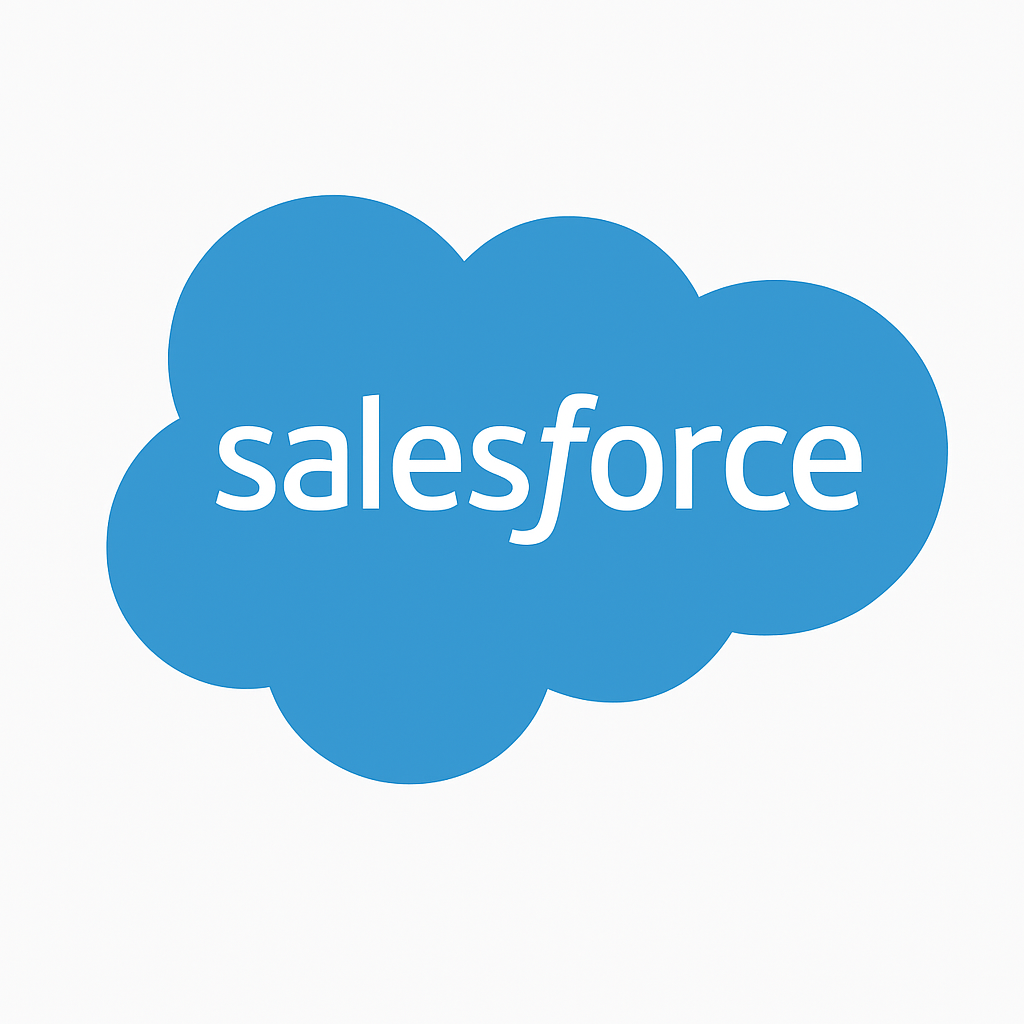
2. HubSpot CRM (with ChatSpot & Breeze)
HubSpot AI tools are built into CRM, not separate modules. ChatSpot helps you manage CRM through natural prompts, and Breeze Copilot automates repetitive tasks, including creating emails and workflows. Thanks to intuitive UX and integration with marketing, the platform is suitable for teams looking for simple solutions without high overhead costs.
Customer rating: 4.5/5
Pricing: Free basic CRM; AI in Pro+ plans from $90/month
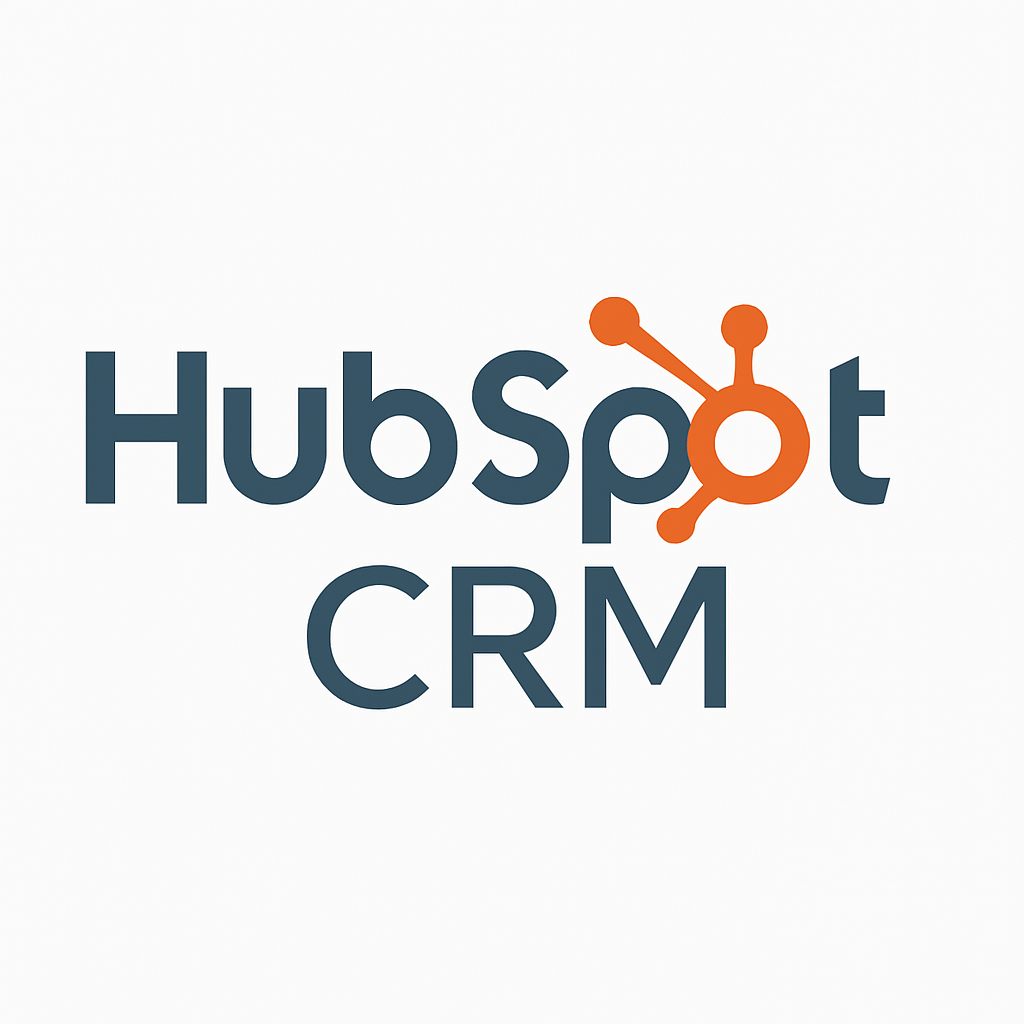
3. Zoho CRM (powered by Zia)
Zia is Zoho’s AI assistant, which integrates into everyday operations, suggests the best time to contact customers, identifies anomalies and recommends the following actions. The price is attractive, although the extended features are available at higher rates.
Customer rating: 4.3/5
Prices: from $14/user per month
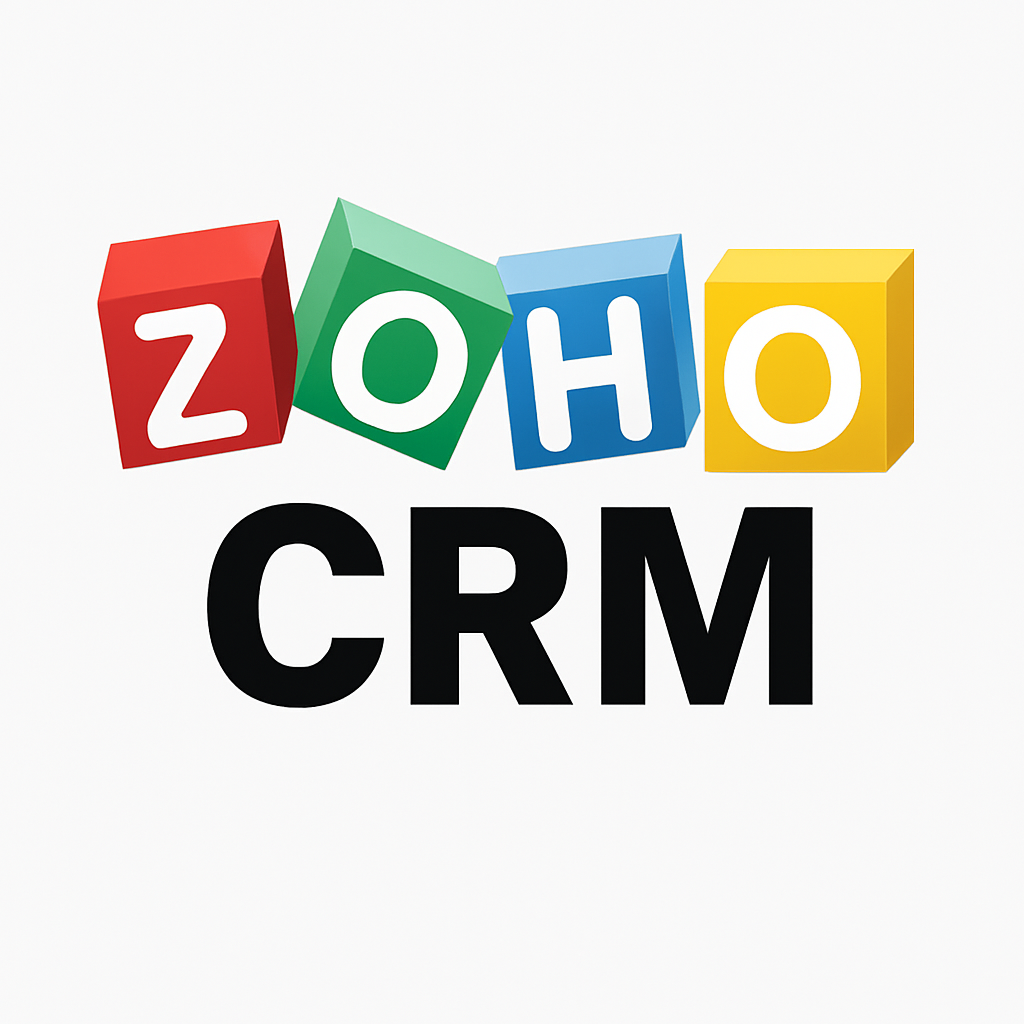
4. Microsoft Dynamics 365 AI (with Copilot)
Integration with Outlook, Teams and SharePoint makes CRM an extension of familiar tools. Copilot processes letters, summarises meetings and tracks transaction risks. Suitable for enterprise level, requires IT support during customisation.
Customer rating: 4.3/5
Prices: from $30/user per month

5. Freshworks CRM (Freddy AI)
Freddy AI identifies risky transactions, helps to form coverage, and ranks leads by quality. Suitable for small businesses, scales with growing needs.
Customer rating: 4.5/5
Prices: free plan is available; paid – from $29/user per month
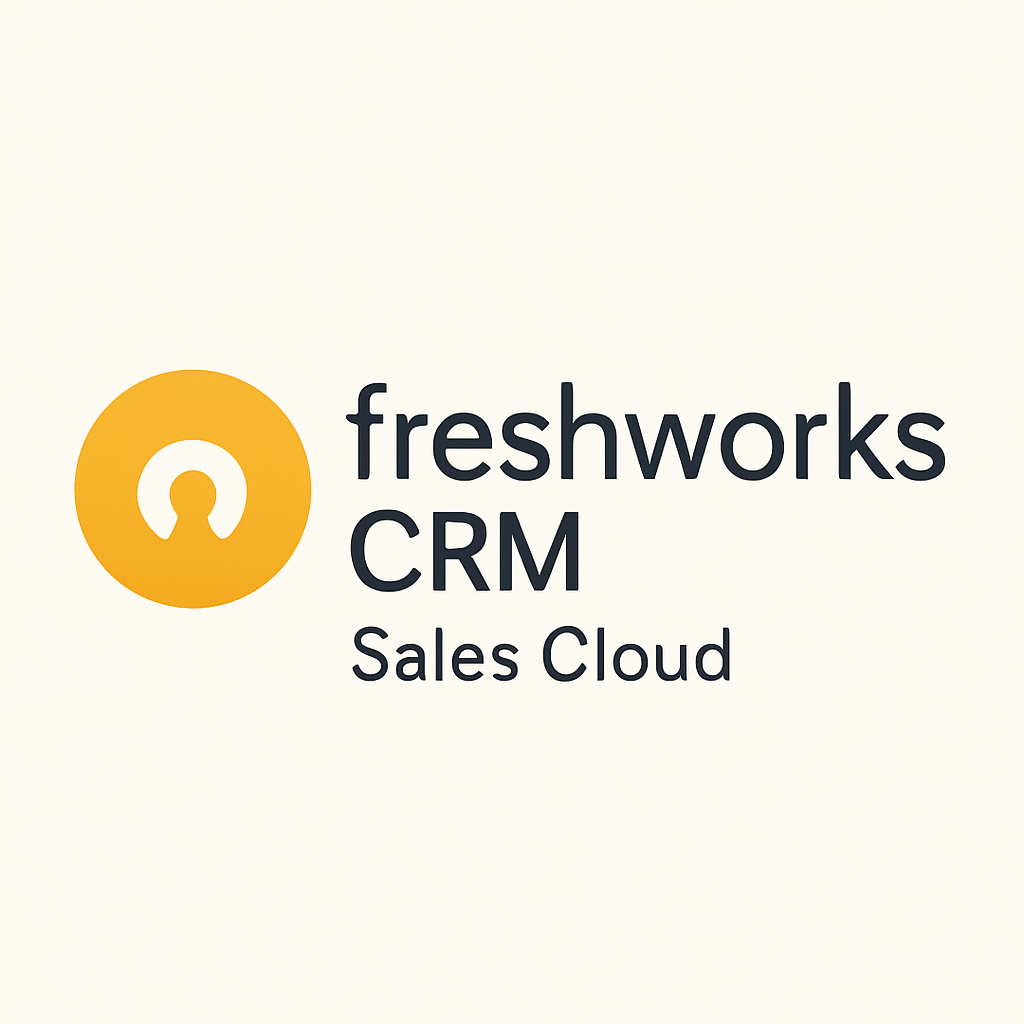
6. Pipedrive (AI Assistant)
The AI assistant focuses on key transactions, summarises long letters, and generates trend reports. Practical AI is integrated into the sales process, without unnecessary functions.
Customer rating: 4.5/5
Prices: from $14/user per month

7. ClickUp (CRM with AI Blocks)
ClickUp is a project management platform transformed into a CRM with modular AI blocks. Allows you to extract data in real time, automate tasks and centralise communications. Especially useful for startups.
Customer rating: 4.7/5
Prices: from $9/user per month
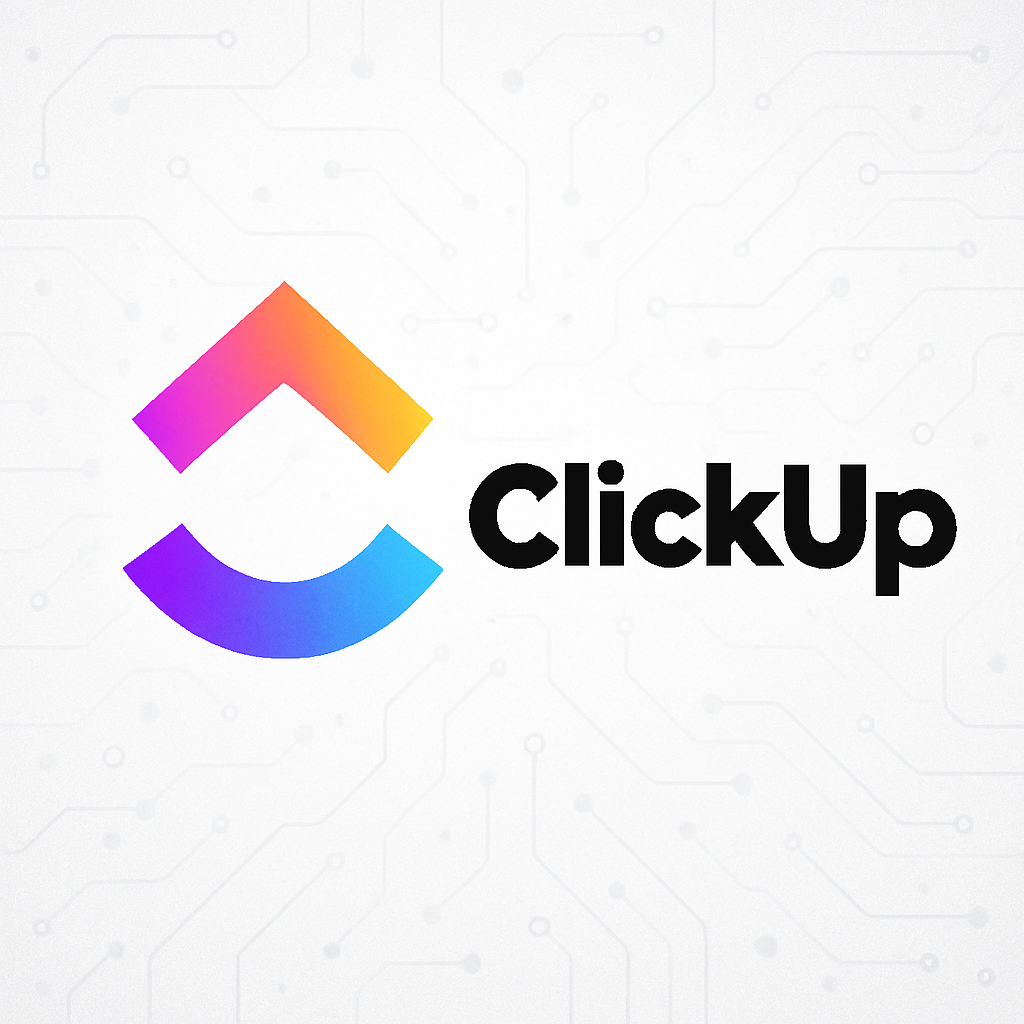
8. Zendesk Sell
Best known for its service solutions, Zendesk also offers a lightweight but efficient sales CRM. AI is used to assign leads, interpret intent, and streamline support-to-sales handoffs. Its strength lies in unifying customer data across touchpoints, though its sales features aren’t as robust as others on this list.
Customer Rating: 4.3/5
Pricing: From $19/user/month

9. SAP Sales Cloud
SAP uses intelligent automation for large organisations with a large amount of data. AI helps segment customers, evaluate opportunities and forecast sales. For existing customers, SAP is the best choice.
Customer rating: 4.2/5
Prices: corporate, customised
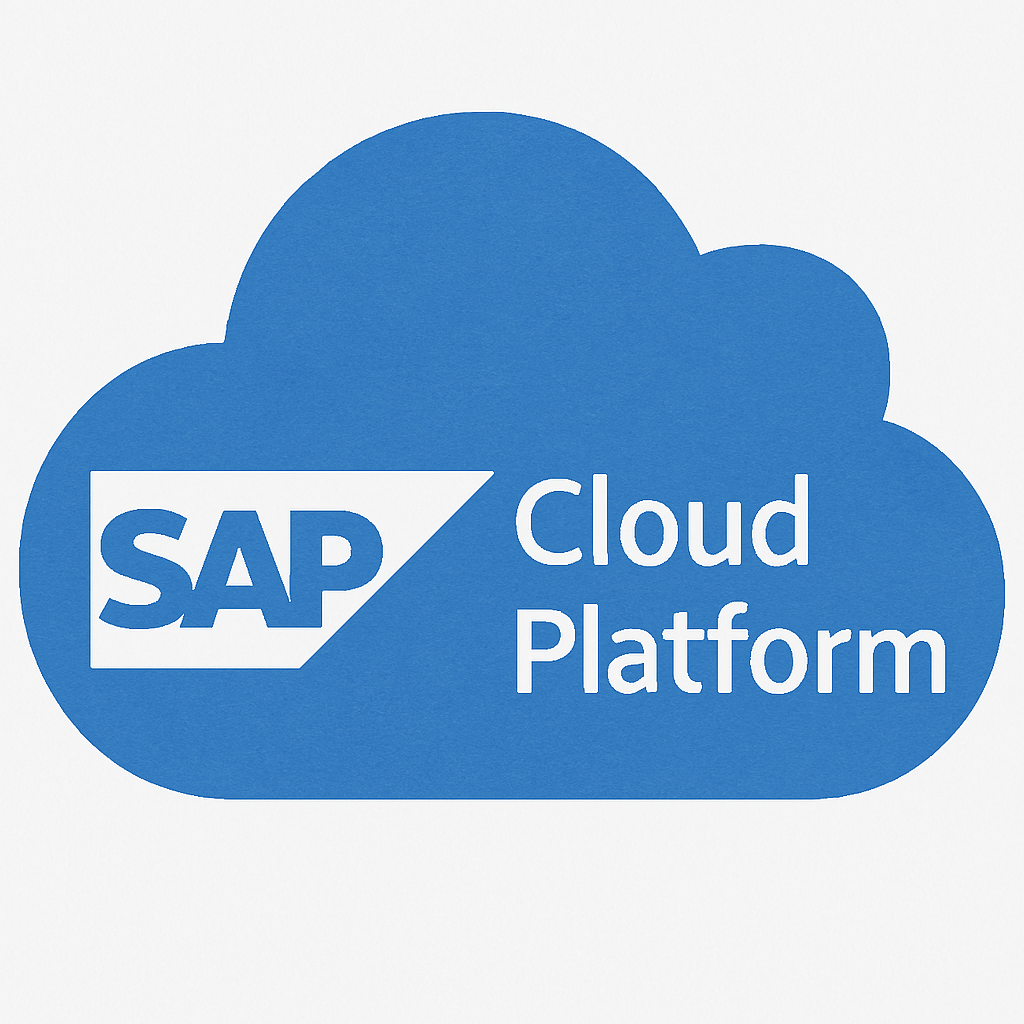
10. Oracle Sales Cloud
Oracle combines AI with deep industry customisation, predicts outflow and analyzes the emotional mood of customers. Requires more technical resources, but provides powerful automation of corporate sales cycles.
Customer rating: 4.1/5
Prices: corporate, customised
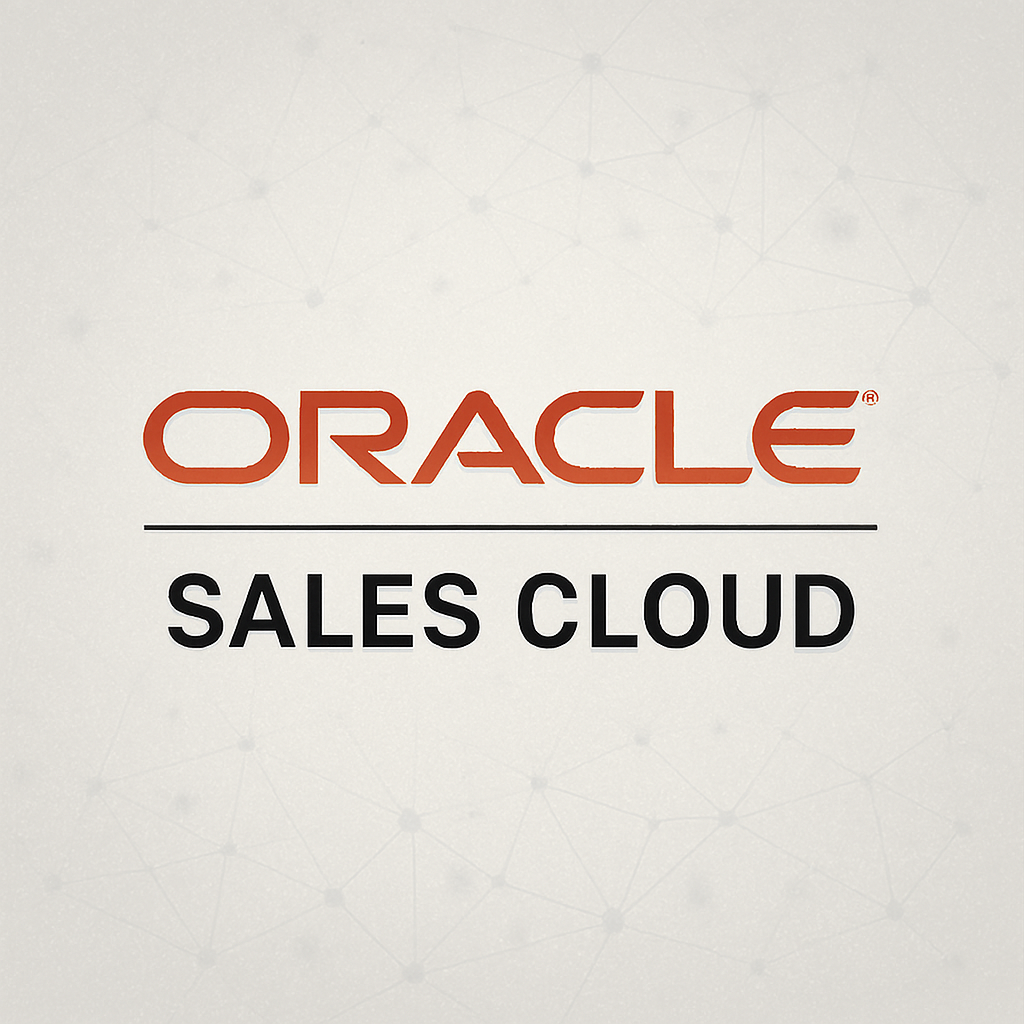
Trends in AI CRM to Watch in 2025
AI is no longer just a support tool — it is reshaping the core of customer relationship management. In 2025, several emerging trends are driving how businesses use AI to connect, convert, and grow.
Adaptive AI is leading the next wave of personalization. Unlike traditional AI models, it continuously learns and adjusts in real time based on user behavior, customer sentiment, and outcomes. Whether it’s tailoring support responses to a customer’s tone or recommending deal-closing actions based on a rep’s habits, adaptive AI enables a hyper-personalized experience that evolves with every interaction.
AI-powered RevOps is becoming the backbone of cross-departmental alignment. With generative and predictive AI, Revenue Operations teams can automate reporting, forecast with higher accuracy, and ensure tighter collaboration between sales, marketing, and customer success. The result is a unified strategy focused on driving predictable revenue growth.
FAQ
An AI CRM tool is customer relationship management software enhanced with artificial intelligence to automate tasks, predict customer behavior, and personalize communication.
AI CRMs are valuable for companies in sales, marketing, e-commerce, finance, and customer service — especially those handling large volumes of customer data or seeking to automate workflows.
Any business aiming to improve customer engagement, reduce manual tasks, and make data-driven decisions can benefit from startups to large enterprises.
Yes. AI analyzes purchase history, behavior, and preferences to recommend relevant products or services, helping teams present the right offer at the right time.
Focus on tools offering predictive analytics, lead scoring, sales automation, chatbot integration, real-time reporting, and ease of use across teams.
Pricing varies widely. Some offer free tiers for small businesses, while advanced AI features in enterprise platforms can be expensive but provide high ROI.
Conclusion
AI CRM tools are transforming customer relationship management by streamlining workflows and supporting data-driven decision-making. From adaptive personalization to predictive analytics and automated support, modern platforms create real value for sales, marketing and customer service departments. Regardless of whether your business is small and strives to save time, or large and focused on scaling, the introduction of artificial intelligence in CRM is no longer an option – it is a necessary step to remain competitive.
If you are looking for a suitable AI CRM for your business, our team is ready to help. We provide expert guidance, platform comparisons and personalized advice, taking into account the company’s goals, budget and technology stack.




